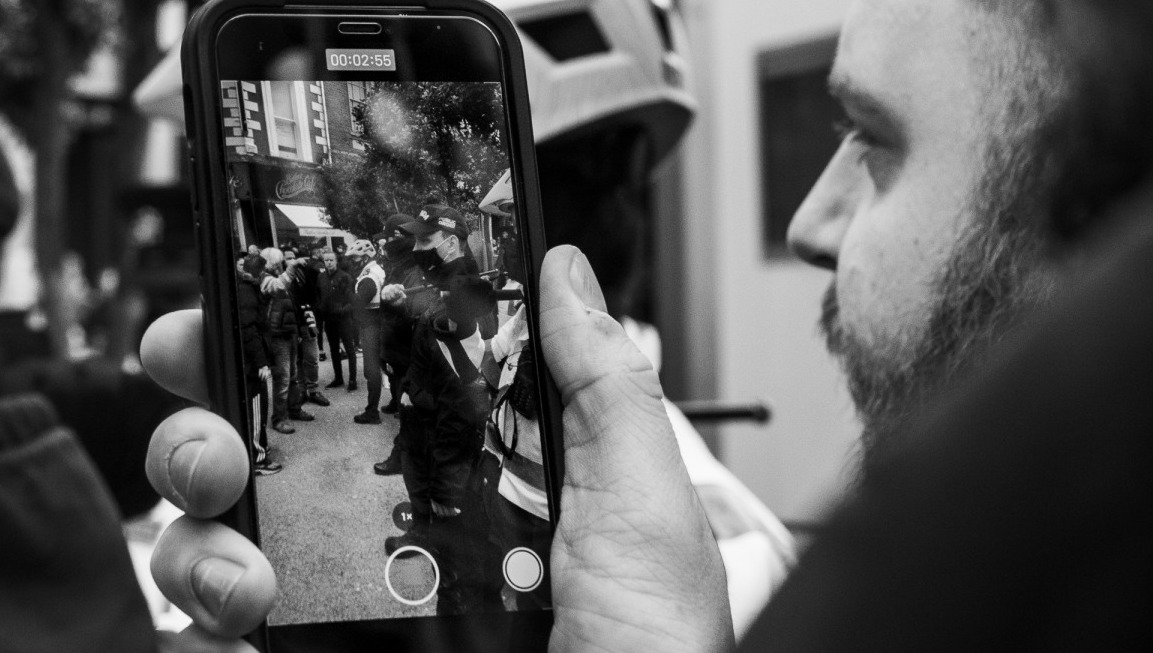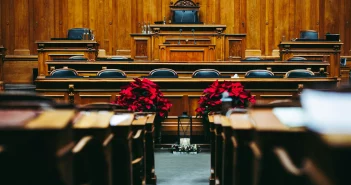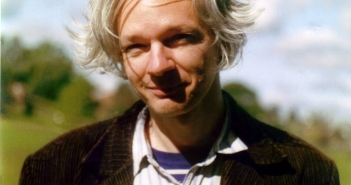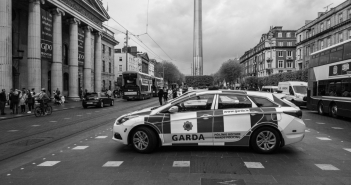The new so-called Hate Crime Bill [Criminal Justice (Incitement to Violence or Hatred and Hate Offences) Bill 2022] in Ireland has generated quite a furore, including outright condemnation by Elon Musk, who described the measure as a “Massive attack on freedom of speech.”
It has also been branded “insane” by Donald Trump Junior, which was used as a distorted form of justification for the law by Minister Simon Harris. However, criticism has also come from Paul Murphy of People Before Profit from the opposite end of the political spectrum to the Trump family. There has also been criticism from human rights bodies.
The crucial provisions are Section 7 and Section 8.
Massive attack on freedom of speech
— Elon Musk (@elonmusk) April 29, 2023
Protected Characteristics
Section 7 is the mechanism by which offences against those of protected characteristics can be criminalised. At one level it is an admirable measure. Indeed, I have represented people with disabilities, who are one of the categories included.
More controversially, transgenderism is one of the protected categories. It was surely not hate speech for the feminist author Germaine Greer to say that a man who becomes a woman can never really understand what it is to be a woman.
In my view it was a serious violation of fair comment to no platform Greer for the comments – no matter whether one agrees with her ideas or not. To criminalise such a statement would be a return to the Dark Ages of the Papal Index.
One hopes that a statement such as that made by Greer would be protected as legitimate political or cultural criticism, which are important delimiters and qualifiers contained in the Act, but the defence would arise only if the matter actually came to Court. The existence of a criminal charge might still be bandied about to damage the reputation of an individual or publisher. Malicious prosecutions are not unheard of in the Emerald Isle.
Perhaps what really stoked the ire was Greer also stating “because he does not have a smelly vagina”. This brings us to the subject of ridicule. Ronald Dworkin wrote an article on the right to ridicule inspired by the Danish Cartoons incident.
ridicule is a distinct kind of expression: its substance cannot be repackaged in a less offensive rhetorical form without expressing something very different from what was intended….
So, in a democracy no one, however powerful or important, enjoys a right not to be insulted or offended. Christopher Hitchens and the English judge Stephan Sedley have also remarked that any freedom to speak inoffensively is worthless.
In more carefree times, political opponents Gore Vidal and William F. Buckley came together as pundits at the behest of a failing network for the 1968 Democratic and Republican Party Conventions. This has recently been documented in a film called ‘Best of Enemies’, which is now a West End play by the same name.
William F. Buckley was the archangel of neo-conservatism, while Gore Vidal was an embodiment of what now seems an excessive liberalism. They deliberated on a state of siege, with riots in Chicago and democratic legitimation in question. America, along with the rest of the world, was on the brink, just like today.
The debate famously culminated after the Republican Convention nominating Richard Nixon, who now seems a more sympathetic figure when compared to what followed him. Indeed, Nixon’s statement in 1969 that government has a great role to play in health care, ‘but we must always make sure that our doctors will be working for their patients and not for the federal government,’ is perhaps an idea that still has some merit; especially when one considers the damage of the top-down, dictatorial approach taken by many governments in response to Covid-19.
In front of a live TV audience of millions, Buckley vented an anger, which he later regretted, calling Vidal ‘a queer’; in response to Vidal describing Buckley as a crypto-Nazi.
David Langwallner inveighs against the distinct evils of #neoliberalism and #neoconservatism that have shaped our time.https://t.co/mUXHStRe7M@broadsheet_ie @PD03662439 @IlsaCarter1 @DLangwallner @FilmWayfarers @KevinHIpoet1967 @NMcDevitt @saoirse_mchugh @Patrickttierney
— CassandraVoices (@VoicesCassandra) August 19, 2020
Hate Speech
Let’s consider both comments in the light of the current Irish legislation, Section 7 and Section 8 in particular. Buckley’s comment is arguably hate speech directed against a protected characteristic, i.e. gay people, although a term that was originally meant as an insult has since been appropriated by the gay community as almost a badge of honour, in a way similar to the artistic licence taken with the “n-word” among African-American (or Black?) communities. Can offensive terms be used by those with a protected characteristic?
Moreover, in a 1974 essay for the New York Review of Books ‘Fascinating Fascism’ on Leni Riefenstahl, Susan Sontag wondered how it had come about that ‘a regime which persecuted homosexuals [had]become a gay turn-on?’ Under the current legislation would it be a crime to suggest that the Nazi (anti-)aesthetic could be ‘a turn on’ to a gay person?
A latter-day Gore Vidal might also be prosecuted for branding a right-wing Republican such as Buckley a crypto-Nazi, as Section 8 criminalises grossly trivialising genocide, crimes against humanity and peace.
Crucially Section 11 of the act allows for a defence of criticism with respect to protected characteristics. But this does not apply, remarkably, to crimes against humanity under Section 8. To this we now turn.
The language of Section 8 which criminalises inter alia crimes against humanity may be desirable in principle, although the overly broad language sets off alarm bells.
Arguably, condoning or negating such crimes ought to be a criminal offence. Imagine being an Armenian and having to listen to Turkish propaganda justifying what is considered the first orchestrated attempt to eliminate a national group in the twentieth century?
But this may easily become a legitimate subject for debate, such as exploring whether the Malthusian policies of the British Crown in Ireland during the Famine of 1845-51 should be described as a genocide.
Also, who decides whether a genocide has taken place, a body of historians, or a court of law? Do we need to allow the fog of war to dissipate before any such adjudications with criminal ramifications are determined?
Could it now be an offence to claim that Putin’s war in the Ukraine is really about Great Powers competing for resources rather than an attempt to eliminate Ukrainian national identity? By assessing the attendant brutality of the war in terms of Great Power politics, would a publisher or individual then be “trivialising” a crime against humanity.
A measured denial of genocide – such as claims that the ICC’s Putin arrest warrant was based on State Department funded report that debunked itself – is completely different to an ahistorical assessment of a wide range of primary sources. The crucial issue here is adherence to the facts. It must be open for historians, journalists and lawyers to scrutinise questionable narratives around controversial events, such as the Kennedy Assassination. A distinction perhaps is that crimes against humanity are generally on a scale such as to make them undeniable.
Criminalising that which grossly trivialises crimes against humanity is far too opaque and subjective a ground for a prosecution. The Act ought to be challenged under Article 40.6.1 of the Irish Constitution: ‘The right of the citizens to express freely their convictions and opinions.’
An Article 26 Reference (by the President to the Supreme Court required within seven days of his receiving it) poses the risk however that if is unsuccessful there will be no further opportunity challenge any aspect of it in an Irish court.
David Langwallner arges that freedom of speech, a central hallmark of a democracy encouraging diversity and tolerance, is under serious threat from social media.https://t.co/DacsViiSF4@broadsheet_ie @BowesChay @MattChristmas @danieleidiniph1 @davidmcw @liamherrick @LiamDeegan3
— CassandraVoices (@VoicesCassandra) March 14, 2022
Ecocide and Economicide
There may, however, be certain unintended consequences of the Act that could be used to advance progressive causes.
In international law there are established candidates which are part of customary international law so called lex lata (established principles of customary international law), and more speculative controversial candidates over which there is an increasing lack of consensus, called in international law terms de lega ferenda (not yet firmly established).
Thus, for example, one potential crime against humanity supported from the 1970’s proposed by Richard A. Falk is ecocide or crimes against the environment. Since such a crime involves various forms of intent and can include a conspiracy, it would involve at least the meeting of minds of the major oil and gas companies, and those who profit from them, including legislators.
There is also a potential new crime against humanity for which there is less authority to date of economicide. Perhaps all of those who peddle a neoliberal world view, or support vulture or cuckoo fund, or allowed wealth to be siphoned off by Big Pharma during Covid-19 could and should be prosecuted!
It could be said that the lifting of the eviction ban by the government is a form of economicide, as it is indirectly fuelling far-right wing extremism, led by gangsters attacking people with baseball bats. Thus, arguably, government policies, or the lack thereof, have indirectly generated racial hatred, and racism (speech directed against a protected characteristic) is criminalised by the Act.
The framing of the innocent is also a de ledge ferenda candidate as a crime against humanity. One might argue that the Garda and/or the Department of Justice have condoned or been in denial of this.
David Langwallner and Cillian Doyle argue that the last hope for thousands facing eviction rests on a last-minute legal challenge to the lifting of the ban. https://t.co/TUwg4rh1SS@DLangwallner @cilliandoyle87 @paddycosgrave @CatuIreland @RBoydBarrett @fallon_donal @EOBroin
— CassandraVoices (@VoicesCassandra) March 29, 2023
European Convention
The Act is also likely to be challenged, and is subject to the jurisprudence of the European Court of Human Rights. Irish courts are bound, but rarely properly observe the Charter, despite the interpretative obligation. In reality we follow the ECHR selectively, ignoring it if it is too awkward, as in the nefarious Dwyer case.
In a number of cases such as Jersild v Denmark (1994) and Lingens v Austria (1986) the ECHR have indicated under Article 10 of the Convention that speech encompasses a right to outrage and shock. These are deemed hallmarks of pluralism, tolerance and broad-mindedness in a society.
Not everything is permitted. Thus, Holocaust denial or racist speech are excluded from protection, but the parameters are wide and restricted categories do not go quite as far as this Act.
The crucial case of Lehideux and Isorni v France (1998) is particularly instructive. Here Le Monde newspaper were protected under Article 10 of the Convention for publishing an article celebrating the career of Marshall Pétain, the Vichy French leader who collaborated with the Nazis. The content was not set out in a way to negate or revise clearly established facts.
It should also be noted that no action of publication or broadcast of hateful material is required, bringing us into the territory of thought crimes. The much-trumpeted defence of legitimate artistic and political criticism only applies to possession of such material.
Considering the imposition of close to absolute liability for the distribution of so-called offensive material on the internet, and even a reversal of the burden of proof, it is no wonder Elton Musk is concerned. He may be put out of business!
Moreover, the term ‘may be prosecuted’ is very loose statutory language. On whose behest?
https://t.co/3KsByVEm8e
David Langwallner welcomes proposed reductions to casino capitalism defamation awards, but fears reforms will protect the powerful and curtail free speech.@VillageMagIRE @paddycosgrave @BowesChay @bergormanlowry @WhistleIRL @cilliandoyle87 @wereontheditch— CassandraVoices (@VoicesCassandra) April 14, 2023
Stress Test
Let us stress test the crucial sections of the Act against potential scenarios.
- Stating that Leo Varadkar is like Verruca Salz from Willie Wonka’s Chocolate Factory, a spoilt privileged brat, and a wart on the body politic offence falls short of being a criminal offence on a literal interpretation of the Act. But what if one called him a crypto-Nazi or inferred that Nazism could be a turn-on to him? Would that be grossly trivialising crimes against humanity or demeaning to a protected category? Crucially, the defence of political criticism is unavailable for crimes against humanity.
- Adrian Hardiman, our finest judge since Declan Costello, once addressed my King’s Inn class to defend his decision in the Portmanock Golf Club case (2009) where he sanctioned the barring of women members from the club, much to the distress of the Equality Authority, which had taken the case. He then argued that a lesbian rugby club should not be obliged to accept him as a member given he was not a lesbian and couldn’t play rugby. These comments by a Supreme Court judge were in a public place. We may have to shut down, or sanitise beyond recognition, the hallowed debating societies of Ireland in response to this Act.
- Is Michael O’ Leary the Chairman of Ryanair in his denial of man-made climate change grossly trivialising the crime against humanity that is ecocide? Or what if one were to say that supposed climate change activists including the IMF and Bill Gates are themselves guilty of crimes against humanity for condoning Malthusian practices, rather than focusing on regulating the extractive corporations devouring the planet?
J.G. Ballard's novels anticipated the disintegration of the neoliberal order we are now witnessing according to David Langwallner.https://t.co/pNxjVgm0Nj@broadsheet_ie @DLangwallner @WaldronDara @wadeinthewate11 @danieleidiniph1 @fellipelopes7 @PaulGilgunn @think_or_swim
— CassandraVoices (@VoicesCassandra) February 9, 2021
Book Collector
I have been a book collector of first editions since I was sixteen. One book in my collection is a first edition of Vladimir Nabokov Lolita, (1959) which narrates in baroque language an affair between a middle-aged man and an under-age girl. I also possess a first edition of the notorious fascist writer Louis-Ferdinand Céline’s Journey to the End of Night (1932). In possessing works that seemingly supports crimes against humanity, and another that undermines protected characteristics am I guilty of an offence?
Even if I am not prosecuted, does the very existence of such an offence generate opprobrium towards great literature?
One fears that even the great Dostoevsky’s books may soon be de-platformed if any of these are deemed a “Kremlin-favoured work.”
Simon Harris has suggested that there is no conspiracy, or campaign being orchestrated against free speech in response to condemnation. The jury is still decidedly out on that question. Perhaps what we see at work is a coalition of interests, or a just a confederacy of dunces.
A chill wind blows. Slow train coming and more acts to follow.




